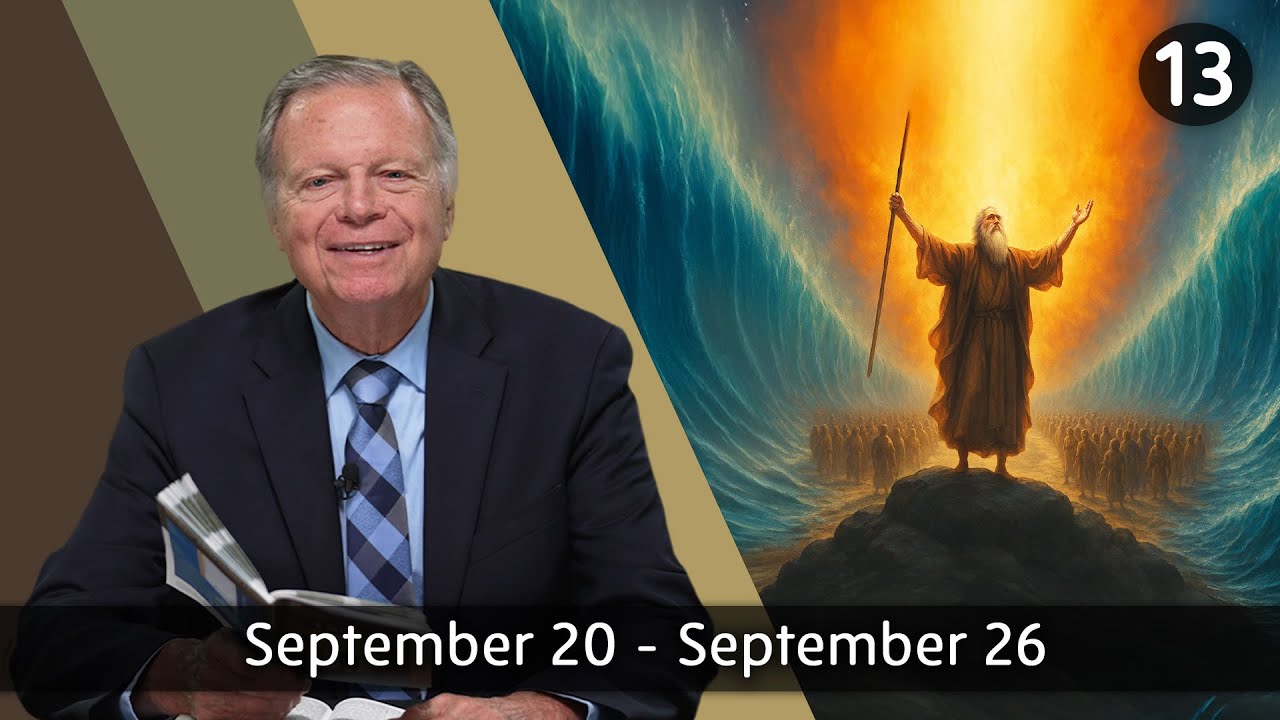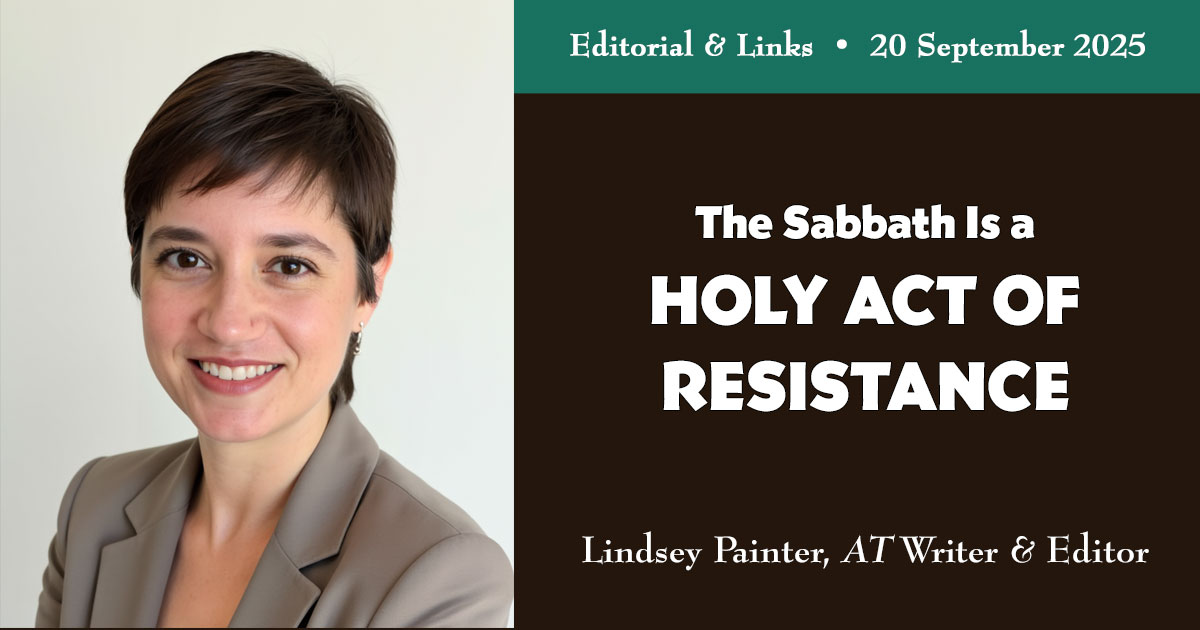"Apocalipsis 7:10" is a powerful Spanish worship song drawn directly from the words of Scripture: “La salvación pertenece a nuestro Dios…,” Salvation belongs to our God. With deep reverence and heartfelt conviction, Rowlbest brings this message to life in a stirring performance that points all glory to the Lamb. 🎶 This moving moment from the General Conference Session is a declaration of faith. Press play and let this Scripture-based worship draw your heart into the promise of Revelation 7:10, where every nation will one day cry out in unity and praise. SUBSCRIBE to the official Seventh-day Adventist Church channel: https://www.youtube.com/@AdventistOrgChurch 🌐 Visit: https://adventist.org Find us on social media by following the links below:
Facebook: https://www.facebook.com/TheAdventistChurch
Twitter: https://x.com/adventistchurch
Instagram: https://www.instagram.com/adventistchurch Source: https://www.youtube.com/watch?v=0t_F2y6Jy8w
Exodus – Lesson 13.The Tabernacle | 📘 Sabbath School with Pastor Mark Finley

Series EXODUS with Pastor Mark Finley
Lesson 13.The Tabernacle
A Place of God’s Presence and Salvation
After the exodus from Egypt, God did not lead His people only into freedom but also into deeper fellowship with Himself.
The Tabernacle was the expression of His desire to dwell among His people — in the midst of the camp, at the very center of their lives.
It was a place of worship, forgiveness, and encounter with the holy God.
Every curtain, every piece of furniture, and every ritual carried symbolic meaning and pointed forward to the coming work of Jesus.
This lesson shows how God’s plan of salvation was revealed through the earthly sanctuary and how it continues today in Christ.
The Tabernacle thus stands as a living testimony to God’s nearness, grace, and redemption.
Content:
13.1 The Sabbath of the Lord
Celebrating God’s Presence – Creation, Redemption, and Fellowship
The Sabbath was never merely a Jewish commandment, but a gift of God to humanity from the very beginning.
Even before Sinai, it was sanctified and observed — as a reminder of God’s creation and as a sign of His saving grace.
In connection with the construction of the Tabernacle, the Sabbath is emphasized again, because it carries the same message as the sanctuary itself: God dwells among His people.
The Sabbath directs our gaze toward God — as Creator, Redeemer, and King.
It is not merely a day of rest, but a sacred space in time in which God desires to meet us.
For God’s people, the Sabbath remains a weekly expression of trust, worship, and identity.
13.2 Offerings and the Spirit
Giving with Joy – Serving Filled with the Spirit
In the building of the Tabernacle, the power of a willing and Spirit-filled community became visible.
The Israelites gave not only material goods generously, but also their time, creativity, and skills — all out of love and gratitude toward God.
It was the Holy Spirit who equipped people like Bezalel and Oholiab with wisdom and craftsmanship so that God’s work could be done precisely and beautifully.
This shows that the Holy Spirit works not only through the supernatural but also through practical gifts in daily life.
God’s work succeeds when people offer themselves joyfully and wholeheartedly.
Even today, God calls us to use our gifts — whether spiritual, creative, or organizational — in service to His kingdom.
13.3 The Tabernacle Built
God’s Plan in Detail – A Place of Redemption and Encounter
The construction of the Tabernacle was carried out with extraordinary care and according to exact divine instructions.
This attention to detail shows how important every single element of God’s plan of salvation is.
Nothing was arbitrary — every piece of furniture, every fabric, and every ritual in the sanctuary served to make the gospel tangible and understandable.
The daily and annual services revealed God’s dealing with sin and His grace toward the repentant sinner.
Thus, the Tabernacle became the visible center of God’s presence, righteousness, and forgiveness.
Even today, God invites us to honor His holiness — with hearts ready to meet Him in every area of life.
13.4 God’s Presence in the Tabernacle
A God Who Dwells Among His People
The dedication of the Tabernacle marked the solemn climax of God’s journey with Israel — His presence visibly descended in the form of the cloud by day and the fire by night.
This Shekinah glory showed the Israelites that the Almighty God truly dwelt in their midst.
The Tabernacle was not only a place of worship but also a sign of God’s nearness, guidance, and faithfulness.
As in creation, the work was completed — and God Himself filled the space.
This connection between creation and sanctuary points forward to God’s ultimate dwelling among the redeemed.
Even today, God desires to dwell in the midst of our lives — through His Spirit, His Word, and our communion with Him.
13.5 Jesus Tabernacled With Humanity
God Becomes Human – and Lives Among Us
When Jesus became human, the symbolic meaning of the Old Testament Tabernacle was fulfilled in a unique way: God dwelt among His people.
John describes this with the verb “tabernacled” or “pitched His tent” among us — a direct reference to the Tabernacle, showing that God’s nearness was now made real in the person of Jesus.
In Christ we meet Immanuel — God with us — visible, tangible, full of grace and truth.
Even today, He dwells in and among us through the Holy Spirit and invites us into fellowship with Himself.
In Revelation this promise reaches its fulfillment: God will dwell among His people forever.
This hope strengthens our faith and gives us courage to persevere in trust until the end.
13.6 Summary
God’s Plan: To Dwell Among His People
The Tabernacle was more than just a tent — it was a visible sign of God’s desire to dwell among His people.
It was built with great dedication, through voluntary offerings, and by the empowerment of the Holy Spirit, with every detail reflecting God’s plan of redemption.
The Sabbath, the sacrificial system, and the manifestation of God’s presence in the cloud all revealed how closely God was connected with His people.
Everything pointed to Jesus, who eventually “tabernacled” among us as a human being and revealed the glory of God.
In Him, the symbolic promise of the Tabernacle is fulfilled: forgiveness, presence, and fellowship.
The Bible concludes with the ultimate fulfillment of this hope — that God will dwell with the redeemed forever in the New Jerusalem.
Editorial: The Sabbath Is a Holy Act of Resistance

Have you ever heard anybody brag like this? “I worked so hard last month I crashed for two days on the weekend; I couldn’t even get out of bed!” “I usually sleep only 4-5 hours a night” “I never let sickness keep me from work. I can just work from my bed!” Our world has […] Source: https://atoday.org/editorial-the-sabbath-is-a-holy-act-of-resistance/
Un bar ofreció bebidas con descuentos por traer el libro el Conflicto de los siglos en Baltimore

Los habitantes de Baltimore se llevaron una gran sorpresa cuando miles de ejemplares del libro El conflicto de los siglos, de Ellen G. White, fueron depositados en sus buzones. Pronto, los ciudadanos de Baltimore comenzaron a enviar mensajes a sus amigos y familiares preguntándoles si habían recibido un ejemplar, lo que provocó que muchos se […] Source: https://atoday.org/un-bar-ofrecio-bebidas-con-descuentos-si-llevan-el-libro-el-conflicto-de-los-siglos-en-batilmore/
God First: Your Daily Prayer Meeting #1121
"If you believe, you will receive whatever you ask for in prayer" (Matthew 21:22, NIV).
Tag someone in need of prayer, and kindly share your prayer requests here:
https://wkf.ms/3DBuapQ Source: https://www.youtube.com/watch?v=RdQoPcKrxN8
Manila Adventist College Opens Extension Campus in the Philippines
The Seventh-day Adventist Church in Southern Luzon celebrated another milestone in education with the inauguration of Manila Adventist College (MAC) – Mindoro, an extension campus of MAC in Sablayan, Occidental Mindoro, Philippines. The instituti… Source: https://adventist.news/news/manila-adventist-college-opens-extension-campus-in-the-philippines
SdS – Il libro dell’Esodo – Lezione 13
IL TABERNACOLO. Approfondimento della lezione 13 del 3° trimestre 2025 a cura di Mariarosa Cavalieri, Roberta Vittori e Nino Plano. 📩 Trovi i materiali utili qui:
🔗 uicca.org/3-trimestre-2025-lezione-13
🔗 https://uicca.org/nocciolo-3-trimestre-2025
🔗 https://uicca.org/edizioni-adv-3-trimestre-2025
🔗 https://ottopermilleavventisti.it/ Source: https://www.youtube.com/watch?v=TqUjNU2bVWI
Regional Conference Head Office Weighs in on Racial Concerns Arising Over Adventist Support of Charlie Kirk

19 September 2025 | Following a statement by the leadership of the Central States Regional Conference yesterday, the coordinating body of all the regional conferences, the Seventh-day Adventist Office for Regional Conference Ministry, has released a “Statement on Justice, Unity, and Gospel Integrity.” “The Regional Conferences of the Seventh-day Adventist Church affirm their full support […] Source: https://atoday.org/regional-conference-head-office-weighs-in-on-conflicts-arising-over-adventist-support-of-charlie-kirk/
Problemowy urok popularnej walidacji

Tyler Kraft | 16 września 2025 Po tragicznym zamordowaniu Charliego Kirka w adwentystycznych mediach społecznościowych pojawiło się coś potencjalnie problematycznego. Nie mam na myśli dyskusji o jego świętości czy nikczemności – tych nie brakowało – lecz liczne wpisy celebrujące fakt, że Kirk przestrzegał szabatu. Pół tuzina członków kościoła z entuzjazmem przesłało mi linki do nagrań, […] Source: https://atoday.org/problemowy-urok-popularnej-walidacji/
🌍 Adventist News Network – September 19, 2025: Adventists mobilize aid after floods in Cape Verde & More Global News
 Adventist News Network – September 19, 2025: Adventists mobilize aid after floods in Cape Verde & More Global News |
Adventist News Network – September 19, 2025: Adventists mobilize aid after floods in Cape Verde & More Global News |
This week on ANN: |
· Adventists mobilize aid after floods in Cape Verde, cyclists travel to bring health and solidarity to remote communities in Colombia, youth spread love in a large service initiative in Sarajevo, Bosnia, and the president of Ghana requests a partnership with the Adventist Church.
· Stay tuned as ANN brings everything you have to know about what is happening in the church worldwide.
- « Previous Page
- 1
- …
- 219
- 220
- 221
- 222
- 223
- …
- 4857
- Next Page »

